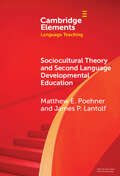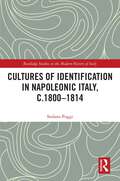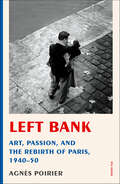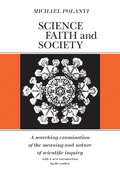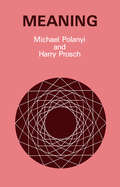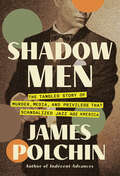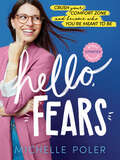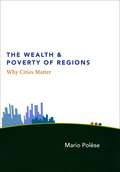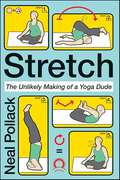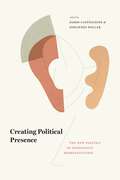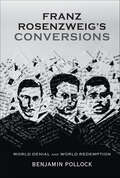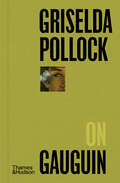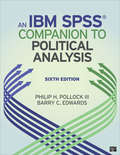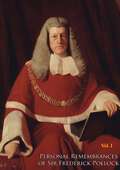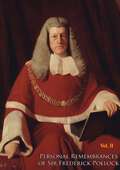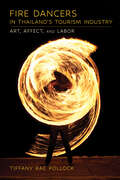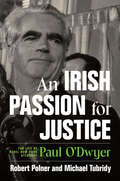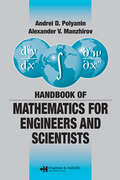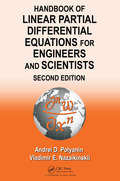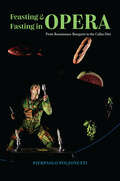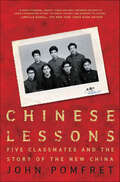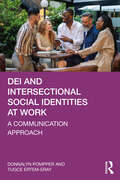- Table View
- List View
Sociocultural Theory and Second Language Developmental Education (Elements in Language Teaching)
by null Matthew E. Poehner null James P. LantolfSociocultural Theory (SCT), as formulated by Russian psychologist L. S. Vygotsky nearly a century ago, is distinct among traditions in the field of second language (L2) studies in its commitment to praxis. According to this view, theory and research provide the orienting basis for practice, which in turn serves as a testing ground for theory (Vygotsky, 1997). This Element offers a synthesis of foundational concepts and principles of SCT and an overview of two important areas of praxis in L2 education: Concept-Based Language Instruction, which organizes language curricula around linguistic concepts, and Dynamic Assessment, a framework that integrates teaching and diagnosing learner L2 abilities. Leading approaches to L2 teacher education informed by SCT are also discussed. Examples from studies with L2 teachers and learners showcase praxis in action, and emerging questions and directions are considered.
Declaration of Peace for Indigenous Australians and Nature: A Legal Pluralist Approach to First Laws and Earth Laws
by Anne Poelina Donna Bagnall Mary Graham Ross Timmulbar Williams Tyson Yunkaporta Chels Marshall Shola Anthony Diop Nadeem Samnakay Michelle Maloney Michael DavisThis groundbreaking book delves into the lived experiences and collective wisdom of Indigenous communities impacted by colonialism. Through collaborations with non-Indigenous colleagues, this book seeks to inform current legal practices and advocate for a transformative shift toward justice, equity, and the recognition of First Law and Earth-centered law.By presenting Indigenous stories as case studies and incorporating the collective wisdom gained through extensive discussions and exchanges with non-Indigenous colleagues, the authors highlight the ways in which Australian law falls short in upholding holistic principles and fails to align with First Law and Earth-centered law. The book invites readers to consider alternative legal futures that are rooted in respect, justice, and the well-being of both Indigenous peoples and the natural environment. Through its thought-provoking analysis, literature reviews, and insights from Indigenous leaders, this book servesas a powerful resource for legal practitioners, policymakers, scholars, and anyone passionate about social justice and environmental sustainability. The book aims to ignite meaningful dialogue and inspire concrete actions to address the historical injustices faced by Indigenous peoples while fostering a more inclusive and equitable legal framework for the generations to come.
Cultures of Identification in Napoleonic Italy, c.1800–1814 (Routledge Studies in the Modern History of Italy)
by Stefano PoggiThrough the lens of identification procedures, this book examines how the processes of state-building affected European societies during the Napoleonic period. By focusing on the Kingdom of Italy, the author shows how the top-down change usually associated with Napoleonic state-building had to compete and share spaces with the agencies of other often-neglected actors such as local bureaucrats, the clergy, and common people.What emerges is the coexistence of different understandings of personal identities, defined as “cultures of identification”. One was rooted in the traditional habits of the population and based on a continuous performance of identities, allowing for a certain degree of fluidity. The other, promoted by the Napoleonic administration, envisaged legal and fixed identities that were to be managed directly by agents of the state. Personal identification in Napoleonic Italy was thus more of a battleground than a mere field of action for the “modernizing” activities of state authorities.Analyzing a period of momentous change for European societies, Cultures of Identification can be profitably read by students and researchers interested in the history of state-building, policing, social control, and personal identification.
Left Bank: Art, Passion, and the Rebirth of Paris, 1940–50
by Agnès PoirierAn incandescent group portrait of the midcentury artists and thinkers whose lives, loves, collaborations, and passions were forged against the wartime destruction and postwar rebirth of ParisIn this fascinating tour of a celebrated city during one of its most trying, significant, and ultimately triumphant eras, Agnes Poirier unspools the stories of the poets, writers, painters, and philosophers whose lives collided to extraordinary effect between 1940 and 1950. She gives us the human drama behind some of the most celebrated works of the 20th century, from Richard Wright’s Native Son, Simone de Beauvoir's The Second Sex, and James Baldwin's Giovanni's Room to Samuel Beckett's Waiting for Godot and Saul Bellow's Augie March, along with the origin stories of now legendary movements, from Existentialism to the Theatre of the Absurd, New Journalism, bebop, and French feminism.We follow Arthur Koestler and Norman Mailer as young men, peek inside Picasso’s studio, and trail the twists of Camus's Sartre's, and Beauvoir’s epic love stories. We witness the births and deaths of newspapers and literary journals and peer through keyholes to see the first kisses and last nights of many ill-advised bedfellows. At every turn, Poirier deftly hones in on the most compelling and colorful history, without undermining the crucial significance of the era. She brings to life the flawed, visionary Parisians who fell in love and out of it, who infuriated and inspired one another, all while reconfiguring the world's political, intellectual, and creative landscapes. With its balance of clear-eyed historical narrative and irresistible anecdotal charm, Left Bank transports readers to a Paris teeming with passion, drama, and life.
Science, Faith and Society: A searching examination of the meaning and nautre of scientific inquiry
by Michael PolanyiIn its concern with science as an essentially human enterprise, Science, Faith and Society makes an original and challenging contribution to the philosophy of science. On its appearance in 1946 the book quickly became the focus of controversy. Polanyi aims to show that science must be understood as a community of inquirers held together by a common faith; science, he argues, is not the use of "scientific method" but rather consists in a discipline imposed by scientists on themselves in the interests of discovering an objective, impersonal truth. That such truth exists and can be found is part of the scientists' faith. Polanyi maintains that both authoritarianism and scepticism, attacking this faith, are attacking science itself.
Meaning
by Michael Polanyi Harry ProschPublished very shortly before his death in February 1976, Meaning is the culmination of Michael Polanyi's philosophic endeavors. With the assistance of Harry Prosch, Polanyi goes beyond his earlier critique of scientific "objectivity" to investigate meaning as founded upon the imaginative and creative faculties. Establishing that science is an inherently normative form of knowledge and that society gives meaning to science instead of being given the "truth" by science, Polanyi contends here that the foundation of meaning is the creative imagination. Largely through metaphorical expression in poetry, art, myth, and religion, the imagination is used to synthesize the otherwise chaotic and disparate elements of life. To Polanyi these integrations stand with those of science as equally valid modes of knowledge. He hopes this view of the foundation of meaning will restore validity to the traditional ideas that were undercut by modern science. Polanyi also outlines the general conditions of a free society that encourage varied approaches to truth, and includes an illuminating discussion of how to restore, to modern minds, the possibility for the acceptance of religion.
Shadow Men: The Tangled Story of Murder, Media, and Privilege That Scandalized Jazz Age America
by James PolchinFrom Edgar Award finalist James Polchin comes a thrilling examination of the murder that captivated Jazz Age America, with echoes of the decadence and violence of The Great GatsbyOn the morning of May 16, 1922, a young man&’s body was found on a desolate road in Westchester County. The victim was penniless ex-sailor Clarence Peters. Walter Ward, the handsome scion of the family that owned the largest chain of bread factories in the country, confessed to the crime as an act of self-defense against a violent gang of &“shadow men,&” blackmailers who extorted their victims&’ moral weaknesses. From the start, one question defined the investigation: What scandalous secret could lead Ward to murder?For sixteen months, the media fueled a firestorm of speculation. Unscrupulous criminal attorneys, fame-seeking chorus girls, con artists, and misogynistic millionaires harnessed the power of the press to shape public perception. New York governor and future presidential candidate Al Smith and editor of the Daily News Joseph Medill Patterson leveraged the investigation to further professional ambitions. Famous figures like Harry Houdini, Arthur Conan Doyle, and F. Scott Fitzgerald weighed in. As the bereaved working-class Peters family sought to bring the callous Ward to justice, America watched enraptured.Capturing the extraordinary twists and turns of the case, Shadow Men conjures the excess and contradictions of the Jazz Age and reveals the true-crime origins of the media-led voyeurism that reverberates through contemporary life. It&’s a story of privilege and power that lays bare the social inequity that continues to influence our system of justice.
Hello, Fears: Crush Your Comfort Zone and Become Who You're Meant to Be
by Michelle PolerAre you ready to break free from the grip of fear and embark on a journey of personal growth and empowerment? For readers of motivational books like Daring Greatly and Girl, Wash Your Face, this growth mindset personal development book from acclaimed speaker and influencer, Michelle Poler, will help you push out of your comfort zone and find authentic happiness.With a captivating blend of vulnerability, humor, and actionable insights, Michelle shares her story of conquering 100 fears in 100 days and provides a roadmap to help you navigate the uncharted territories of your fears. From public speaking and taking risks to facing rejection and embracing vulnerability, Hello, Fears equips you with the tools and mindset needed to set life-changing goals, embrace courage, and live a life without limits.Learn how to identify and understand your fears, uncovering their root causesDiscover proven techniques to step out of your comfort zone and face challenges with confidenceOvercome the fear of failure and transform setbacks into stepping stones for successEmbrace vulnerability and build authentic connections in your personal and professional lifeCultivate resilience and adaptability in the face of uncertainty and changeDevelop a growth mindset and harness fear as a catalyst for personal growthWhether you're struggling with fear in your career, relationships, or personal aspirations, Hello, Fears provides the guidance and motivation you need to break free and live a life driven by courage, resilience, and purpose. Embrace the transformative power of fear and unlock your true potential today!
The Wealth & Poverty of Regions: Why Cities Matter
by Mario PolèseAs the world becomes more interconnected through travel and electronic communication, many believe that physical places will become less important. But as Mario Polèse argues in The Wealth and Poverty of Regions, geography will matter more than ever before in a world where distance is allegedly dead.This provocative book surveys the globe, from London and Cape Town to New York and Beijing, contending that regions rise—or fall—due to their location, not only within nations but also on the world map. Polèse reveals how concentrations of industries and populations in specific locales often result in minor advantages that accumulate over time, resulting in reduced prices, improved transportation networks, increased diversity, and not least of all, “buzz”—the excitement and vitality that attracts ambitious people. The Wealth and Poverty of Regions maps out how a heady mix of size, infrastructure, proximity, and cost will determine which urban centers become the thriving metropolises of the future, and which become the deserted cities of the past. Engagingly written, the book provides insight to the past, present, and future of regions.
Stretch: The Unlikely Making of a Yoga Dude
by Neal PollackFrom Neal Pollack, acclaimed author of Alternadad and The Neal Pollack Anthology of American Literature, comes Stretch: The Unlikely Making of a Yoga Dude. Here is the hilarious but true account of an overweight, balding, skeptical guy who undergoes a miraculous transformation into a healthy, blissful, obsessively dedicated yoga fiend.
Creating Political Presence: The New Politics of Democratic Representation
by Johannes Pollak Dario CastiglioneFor at least two centuries, democratic representation has been at the center of debate. Should elected representatives express the views of the majority, or do they have the discretion to interpret their constituents’ interests? How can representatives balance the desires of their parties and their electors? What should be done to strengthen the representation of groups that have been excluded from the political system? Representative democracy itself remains frequently contested, regarded as incapable of reflecting the will of the masses, or inadequate for today’s global governance. Recently, however, this view of democratic representation has been under attack for its failure to capture the performative and constructive elements of the process of representation, and a new literature more attentive to these aspects of the relationship between representatives and the represented has arisen. In Creating Political Presence, a diverse and international group of scholars explores the implications of such a turn. Two broad, overlapping perspectives emerge. In the first section, the contributions investigate how political representation relates to empowerment, either facilitating or interfering with the capacity of citizens to develop autonomous judgment in collective decision making. Contributions in the second section look at representation from the perspective of inclusion, focusing on how representative relationships and claims articulate the demands of those who are excluded or have no voice. The final section examines political representation from a more systemic perspective, exploring its broader environmental conditions and the way it acquires democratic legitimacy.
Everyday Evil in Stephen King's America: Essays, Images, Paratexts
by Jason S Polley Stephanie Laine HamiltonThis edited collection variously interrogates how everyday evil manifests in Stephen King’s now-familiar American imaginary; an imaginary that increases the representational limits of both anticipated and experienced realism. Divided into three parts: I. The Man, II. The Monster, and III. The Re-mediator, the book offers rigorous readings of evil, realism, and popular culture as represented in a range of texts (and paratexts) from the King canon. Rich with images, a photo-essay, and appendices collecting classical texts and cultural detritus germane to King, this book moves away from viewing King’s work primarily through the lens of the “American gothic” and toward the realism that the suspense novelist’s voice (fictional and non-) and influence (literary and popular) indelibly continue to amplify, all the while complicating the traditional divide between serious literature and popular fiction.Stephen King remains perpetually popular. And he is finally receiving the academic treatment he has craved since the early 1980s. Yet still unexamined in the King critical canon is the suspense novelist’s fascination with “everyday evil.” Beyond rigorous interrogations of King’s fictional depictions of “everyday evil” by an array of scholars of different ranks living around the world (Canada, Finland, Hong Kong, the UK), the book, replete with 20 images, considers how King widens the parameters of literary production and appreciation. An integral part of the Americana that King’s five-decades-in-the-making canon configures, of course, includes King himself. King has long made use of self-referentiality in his fiction and nonfiction. Some of his nonfiction, several of our essays reveal, recirculates in paratextual form as “Prefatory Remarks” to new novels or new editions of older ones. The paratexts considered here (both across the volume and in the appendices) offer alternate ways by which to appreciate King and his sphere of influence (literary and popular). Said appendices are a grouping of King's paratexts on his writing as Bachman, appearing here, for the first time, as a cohesive collection. King's influence took off in the 1970s, as is further explored in the book-enveloping three-part photo-essay “King’s America, America’s King: Stephen King & Popular Culture since the 1970s.” About the transformative quality of “everyday evil,” the photo-essay tracks the cultural impacts of King first as an emerging author, then a pop culture phenomenon, and, finally, as an established American literary voice.Everyday Evil in Stephen King's America is designed to appeal to teachers and students of American literature, to Stephen King enthusiasts, as well as to acolytes of Americana since the Vietnam War.
Franz Rosenzweig's Conversions: World Denial and World Redemption
by Benjamin PollockFranz Rosenzweig's near-conversion to Christianity in the summer of 1913 and his subsequent decision three months later to recommit himself to Judaism is one of the foundational narratives of modern Jewish thought. In this new account of events, Benjamin Pollock suggests that what lay at the heart of Rosenzweig's religious crisis was not a struggle between faith and reason, but skepticism about the world and hope for personal salvation. A close examination of this important time in Rosenzweig's life, the book also sheds light on the full trajectory of his philosophical development.
Griselda Pollock on Gauguin (Pocket Perspectives #6)
by Griselda PollockGriselda Pollock, feminist art historian and longstanding advocate of gender and racial inclusivity, unpacks the racist, sexist, and imperialist underpinnings of works created by Gauguin and others as they competed for preeminence in the European artistic avant-garde of the 1880s and '90s. Surprising, questioning, challenging, enriching: the Pocket Perspectives series presents timeless works by writers and thinkers who have shaped the conversation across the arts, visual culture, and history. Celebrating the undiminished vitality of their ideas today, these covetable and collectable little books embody the best of Thames & Hudson.
An IBM® SPSS® Companion to Political Analysis
by Philip H. Pollock Barry Clayton Edwards"[The text] provides by far the best introduction for students wanting to learn how to use SPSS in conducting statistical analysis. Its clear in-depth examples makes data analysis accessible to even the most numbers-phobic student." —Michael Burch, Eckerd College In Pollock′s trusted IBM SPSS® workbook, students dive headfirst into actual political data and work with a software tool that prepares them not only for future political science research, but the job world as well. Students learn by doing with new guided examples, annotated screenshots, step-by-step instructions, and exercises that reflect current scholarly debates in American political behavior and comparative politics. This Sixth Edition of An IBM SPSS® Companion to Political Analysis features thoroughly revised and updated datasets and is compatible with all post-12 releases of SPSS. Give your students the SAGE edge! SAGE edge offers a robust online environment featuring an impressive array of free tools and resources for review, study, and further exploration, keeping both instructors and students on the cutting edge of teaching and learning.
An IBM® SPSS® Companion to Political Analysis
by Philip H. Pollock Barry Clayton Edwards"[The text] provides by far the best introduction for students wanting to learn how to use SPSS in conducting statistical analysis. Its clear in-depth examples makes data analysis accessible to even the most numbers-phobic student." —Michael Burch, Eckerd College In Pollock′s trusted IBM SPSS® workbook, students dive headfirst into actual political data and work with a software tool that prepares them not only for future political science research, but the job world as well. Students learn by doing with new guided examples, annotated screenshots, step-by-step instructions, and exercises that reflect current scholarly debates in American political behavior and comparative politics. This Sixth Edition of An IBM SPSS® Companion to Political Analysis features thoroughly revised and updated datasets and is compatible with all post-12 releases of SPSS. Give your students the SAGE edge! SAGE edge offers a robust online environment featuring an impressive array of free tools and resources for review, study, and further exploration, keeping both instructors and students on the cutting edge of teaching and learning.
Personal Remembrances of Sir Frederick Pollock, Second Baronet, sometime Queen's Remembrancer Vol. I (Personal Remembrances of Sir Frederick Pollock #1)
by Sir Frederick Pollock"Personal Remembrances of Sir Frederick Pollock" offers an intimate glimpse into the life and times of one of the most distinguished legal scholars and historians of the 19th century. Sir Frederick Pollock, a prominent figure in English law, shares his personal recollections and experiences in this engaging memoir, providing readers with a rich tapestry of his professional achievements and personal anecdotes.The book chronicles Pollock's illustrious career as a barrister, judge, and legal writer, shedding light on his contributions to the development of common law and his influential role in legal education. Pollock's reminiscences are filled with vivid descriptions of his interactions with notable contemporaries, offering unique insights into the intellectual and social circles of Victorian England.Beyond his professional accomplishments, Pollock's memoir delves into his personal life, revealing the man behind the esteemed jurist. He reflects on his friendships, family, and the events that shaped his worldview. His narrative is characterized by wit, wisdom, and a deep appreciation for the nuances of human nature and society."Personal Remembrances of Sir Frederick Pollock" is more than just an autobiography; it is a historical document that captures the spirit of an era. Through Pollock's eloquent prose, readers are transported to a time of profound legal and social transformation. This book is an invaluable resource for historians, legal scholars, and anyone interested in the life of a remarkable figure whose legacy continues to influence the field of law.With its blend of personal reflection and historical context, "Personal Remembrances of Sir Frederick Pollock" provides a compelling portrait of a man who left an indelible mark on the legal landscape and offers timeless wisdom that resonates to this day.
Personal Remembrances of Sir Frederick Pollock, Second Baronet, sometime Queen's Remembrancer Vol. II (Personal Remembrances of Sir Frederick Pollock #2)
by Sir Frederick Pollock"Personal Remembrances of Sir Frederick Pollock" offers an intimate glimpse into the life and times of one of the most distinguished legal scholars and historians of the 19th century. Sir Frederick Pollock, a prominent figure in English law, shares his personal recollections and experiences in this engaging memoir, providing readers with a rich tapestry of his professional achievements and personal anecdotes.The book chronicles Pollock's illustrious career as a barrister, judge, and legal writer, shedding light on his contributions to the development of common law and his influential role in legal education. Pollock's reminiscences are filled with vivid descriptions of his interactions with notable contemporaries, offering unique insights into the intellectual and social circles of Victorian England.Beyond his professional accomplishments, Pollock's memoir delves into his personal life, revealing the man behind the esteemed jurist. He reflects on his friendships, family, and the events that shaped his worldview. His narrative is characterized by wit, wisdom, and a deep appreciation for the nuances of human nature and society."Personal Remembrances of Sir Frederick Pollock" is more than just an autobiography; it is a historical document that captures the spirit of an era. Through Pollock's eloquent prose, readers are transported to a time of profound legal and social transformation. This book is an invaluable resource for historians, legal scholars, and anyone interested in the life of a remarkable figure whose legacy continues to influence the field of law.With its blend of personal reflection and historical context, "Personal Remembrances of Sir Frederick Pollock" provides a compelling portrait of a man who left an indelible mark on the legal landscape and offers timeless wisdom that resonates to this day.
Fire Dancers in Thailand's Tourism Industry: Art, Affect, and Labor
by Tiffany Rae PollockFire Dancers in Thailand's Tourism Industry explores the evolution of fire dancing from informal community jam sessions into the iconic, tourist-oriented performances at beach parties and bars, through a close consideration of the role of affect in the lives of fire dancers in the ever-changing scene. Rather than pursuing the common notion that tourism industries are exploitative enterprises that oppress workers, Tiffany Rae Pollock centers the perspectives of fire artists themselves, who view the industry as simultaneously generative and destructive. Dancers reveal how they employ affect to navigate their lives, art, and labor in this context, showcasing how affect is not only a force that acts on people but also is used and shaped by social actors toward their own ends. Fire Dancers in Thailand's Tourism Industry highlights men as affective laborers, investigating how they manage the eroticization of their identities and the intersections of art and labor in tourist economies. Exploring moments of performance and everyday life, Pollock examines how fire artists reimagine their labor, lives, and communities in Thailand's tourism industry.
An Irish Passion for Justice: The Life of Rebel New York Attorney Paul O'Dwyer
by Robert Polner Michael TubridyAn Irish Passion for Justice reveals the life and work of Paul O'Dwyer, the Irish-born and quintessentially New York activist, politician, and lawyer who fought in the courts and at the barricades for the rights of the downtrodden and the marginalized throughout the 20th century.Robert Polner and Michael Tubridy recount O'Dwyer's legal crusades, political campaigns, and civic interactions, deftly describing how he cut a principled and progressive path through New York City's political machinery and America's reactionary Cold War landscape. Polner and Tubridy's dynamic, penetrating depiction showcases O'Dwyer's consistent left-wing politics and defense of accused Communists in the labor movement, which exposed him to sharp criticism within and beyond the Irish-American community. Even so, his fierce beliefs, loyalty to his brother William, who was the city's mayor after World War II, and influence in Irish-American circles also inspired respect and support. Recognized by his gentle brogue and white pompadour, he fought for the creation of Israel, organized Black voters during the Civil Rights movement, and denounced the Vietnam War as an insurgent Democratic candidate for US Senate. Finally, he enlisted future president Bill Clinton to bring an end to the Troubles in Northern Ireland. As the authors demonstrate, O'Dwyer was both a man of his time and a politician beyond his years.An Irish Passion for Justice tells an enthralling and inspiring New York immigrant story that uncovers how one person, shaped by history and community, can make a difference in the world by holding true to their ideals.
Handbook of Mathematics for Engineers and Scientists (ISSN)
by Andrei D. Polyanin Alexander V. ManzhirovCovering the main fields of mathematics, this handbook focuses on the methods used for obtaining solutions of various classes of mathematical equations that underlie the mathematical modeling of numerous phenomena and processes in science and technology. The authors describe formulas, methods, equations, and solutions that are frequently used in scientific and engineering applications and present classical as well as newer solution methods for various mathematical equations. The book supplies numerous examples, graphs, figures, and diagrams and contains many results in tabular form, including finite sums and series and exact solutions of differential, integral, and functional equations.
Handbook of Linear Partial Differential Equations for Engineers and Scientists
by Andrei D. Polyanin Vladimir E. NazaikinskiiIncludes nearly 4,000 linear partial differential equations (PDEs) with solutionsPresents solutions of numerous problems relevant to heat and mass transfer, wave theory, hydrodynamics, aerodynamics, elasticity, acoustics, electrodynamics, diffraction theory, quantum mechanics, chemical engineering sciences, electrical engineering, and other fieldsO
Feasting & Fasting in Opera: From Renaissance Banquets to the Callas Diet
by Pierpaolo PolzonettiFeasting and Fasting in Operashows that the consumption of food and drink is an essential component of opera, both on and off stage. In this book, opera scholar Pierpaolo Polzonetti explores how convivial culture shaped the birth of opera and opera-going rituals until the mid-nineteenth century, when eating and drinking at the opera house were still common. Through analyses of convivial scenes in operas, the book also shows how the consumption of food and drink, and sharing or the refusal to do so, define characters’ identity and relationships. Feasting and Fasting in Opera moves chronologically from around 1480 to the middle of the nineteenth century, when Wagner’s operatic reforms banished refreshments during the performance and mandated a darkened auditorium and absorbed listening. The book focuses on questions of comedy, pleasure, embodiment, and indulgence—looking at fasting, poisoning, food disorders, body types, diet, and social, ethnic, and gender identities—in both tragic and comic operas from Monteverdi to Puccini. Polzonetti also sheds new light on the diet Maria Callas underwent in preparation for her famous performance as Violetta, the consumptive heroine of Verdi’s La traviata. Neither food lovers nor opera scholars will want to miss Polzonetti’s page-turning and imaginative book.
Chinese Lessons: Five Classmates and the Story of the New China
by John Pomfret"A highly personal, honest, funny and well-informed account of China's hyperactive effort to forget its past and reinvent its future."—The New York Times Book ReviewAs one the first American students admitted to China after the communist revolution, John Pomfret was exposed to a country still emerging from the twin tragedies of the Great Leap Forward and the Cultural Revolution. Crammed into a dorm room with seven Chinese men, Pomfret contended with all manner of cultural differences, from too-short beds and roommates intent on glimpsing a white man naked, to the need for cloak-and-dagger efforts to conceal his relationships with Chinese women. Amidst all that, he immersed himself in the remarkable lives of his classmates.Beginning with Pomfret's first day in China, Chinese Lessons takes us down the often torturous paths that brought together the Nanjing University History Class of 1982: Old Wu's father was killed during the Cultural Revolution for the crime of being an intellectual; Book Idiot Zhou labored in the fields for years rather than agree to a Party-arranged marriage; and Little Guan was forced to publicly denounce and humiliate her father. As Pomfret follows his classmates from childhood to adulthood, he examines the effect of China's transition from near-feudal communism to first-world capitalism. The result is an illuminating report from present-day China, and a moving portrait of its extraordinary people.
DEI and Intersectional Social Identities at Work: A Communication Approach
by Donnalyn Pompper Tugce Ertem-ErayThis book equips readers—both students and communication practitioners—with the theoretical understanding and practical skills they need to support nonprofit and for-profit organizations to create and assess their diversity, equity, inclusion (DEI), and social identity intersectionality goals.Through applied examples of the insider activist role that the communication function plays, the book helps future and current professional communicators navigate organizations toward authentic relationship-building with internal and external audiences. It teaches that embracing DEI includes acknowledging social identity intersectionalities—recognizing that people possess multiple social identity dimensions of age, culture, ethnicity/race, faith/spirituality, gender, physical/psychological ability, sexual orientation, social class, and more. In order to illuminate the theory discussed in the book, each chapter includes thought-provoking situation-opportunity sidebars, discussion questions for drilling deeper into the issues at hand, and case studies with applied lessons about DEI issues.This is an ideal text for advanced undergraduates and graduate courses in organizational communication, strategic communication, marketing communication, human resources, and public relations, as well as for communication practitioners working in these subdisciplines.
